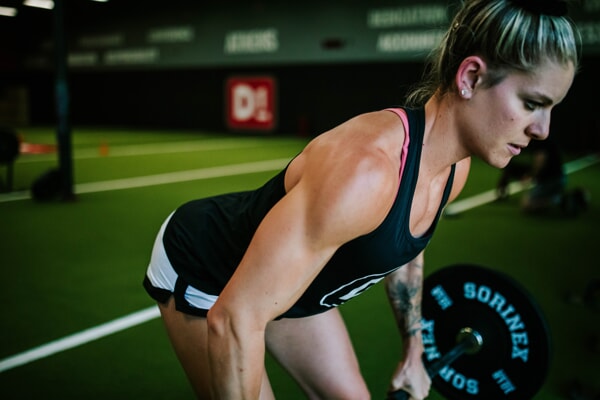Gut Health, Training, and Performance
Author: Keven Kailey, MS, RD
Our bodies are like a big donut. But instead of frosting coating the donut, our digestive tract is coated with a not-so-delicious-goo. From the inside of the mouth, down to the stomach, around the many bends of the intestines, finally the colon, our digestive tract is lined with bacteria.
As an athlete, fueling your body through a colorful and balanced diet allows you to complete one more rep, run one more mile, and recover faster, to do it all over again. So why would you need bacteria?
Aren’t bacteria a bad thing? Why would I want lots of bacteria in my body? The answer lies in what the bacteria does for the body. Trillions of bacteria in the digestive tract help to break down foods that the human digestive tract cannot. There can absolutely be “bad” bacteria in the gut, which can cause issues with digestion, sickness or discomfort. However, the “good” bacteria offer the body so many benefits that scientists are just beginning to discover! It mainly helps with digestion of food and fiber, but some recent research shows how improved gut health may also provide benefits to sleep, depression, and mental health. With how connected our brains and bellies are, this is no surprise!
The gut microbiome consists of bacteria, fungi, viruses. Some of these are harmful, but many are helpful. The kind and number of bacteria is different from person to person and can vary due to certain factors such as if you were breastfed as an infant or if you were delivered via C-section. With so many variations, you may be wondering, is my gut healthy? How can I improve my gut health?
One of the easiest ways to improve your gut health is to eat a colorful, balanced diet. However, some people may find more benefit from utilization of probiotics and/or prebiotics supplementation.
Prebiotics consist of insoluble fiber, which act as food for the “good” bacteria. Human digestive tracts cannot digest these foods, so our bodies rely on bacteria to break it down for us. Prebiotics also enhance colonic bacterial fermentation to improve metabolism, reduce inflammation, and finally enhance the body's ability to absorb certain minerals by increasing the bioavailability (calcium, iron, and magnesium). Examples of prebiotic foods are asparagus, banana, garlic, leek, onion, artichokes, and supplemented products.
Probiotics are supplemented live “good” bacteria that line your digestive tract. These bacteria work to increase the total number of live cultures in your gut. These help to maintain a balance between the “bad” bacteria, produce vitamins, and assist in the process of nutrient absorption. Examples of probiotics are often fermented foods, but also include yogurt, kefir, miso, tempeh, kimchi, sauerkraut, and supplementation.
So how can having a healthy gut improve athletic performance? A recent study in 2022, showed that there may be benefits to performance for endurance athletes with a healthy gut. Gut health can greatly impact your sleep, which is the most important form of recovery. Improved sleep means better performance. To help your gut health and improve your athletic performance it comes down to this: eat colorful and balanced foods along with some pre/probiotics in combination with a variety of protein, fruit, and vegetable sources.
If a healthy gut can aid in both recovery and performance, it is crucial for any athlete to focus on their food intake.
